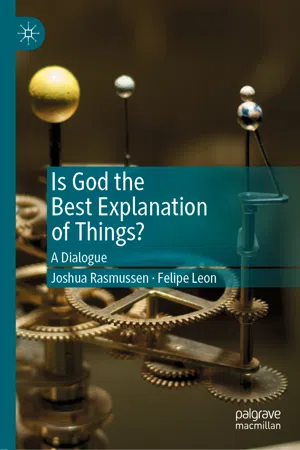1 Purpose
In recent years, philosophers have made remarkable progress on the development and analysis of arguments relevant to the existence/nonexistence of a supreme being. A problem, however, is that many of these developments become lost in the smoke of polarizing debates. We want to explore this topic afresh, by bringing the latest ideas into a new, collaborative investigation of the ultimate explanation of things.
We explore the topic in a friendly, constructive manner. Rather than seek to win an argument, we aim to build upon each other’s ideas in an effort to see more truth. We do not hold up flags for a team or tribe. Nor do we seek victory in a debate. Instead, we seek to learn from each other, as we seek new paths into new lands.
We find that debates often become entrenched in the defense of previous packages. Progress stalls. Time and effort go into the defense of prior positions, leaving unexplored territories unexplored.
We seek another path. We want to see if we can promote significant progress on a universal question through a depolarized style. We want to break new ground, if we can. Our aim, then, is to see if we can bring into view a clearer vision of the foundation of existence.
In view of the wide interest in the question of God’s existence, we also want this book to be widely accessible. While the book is a resource for professional philosophers, we write in a style that is accessible to a broad thoughtful audience. We want everyone who is interested in the question of God’s existence to be able to follow along.
2 What to Expect
For the sake of focus, we concentrate on the following question: What is the best, ultimate explanation of the general features of our world? We do not attempt to tackle all the major themes related to the question of God’s existence. Instead, we narrow our scope to the question of explanation. We use inference to the best explanation as a tool to probe the foundation of things. Together, we seek the best ultimate explanation of everything.
We divide our discussion into three sections. First, we ask whether there is a foundation for universe (along with the related question of what it might mean for the universe to have a foundation). Second, we ask whether, if the universe has a foundation, this foundation is personal. Third, we ask whether the foundation could be a perfectly good, supreme being. Each section divides into a back and forth exchange across several chapters.
By dividing the book into these sections, we are able to organize our path. In the first section, we lay groundwork for later sections. We begin by discussing whether there is a necessarily existent foundation of things. In this way, we separate questions about God’s nature from arguments relevant to particular features of a foundational reality. For example, rather than assume that God would have necessary existence, or that a necessary foundation would be God, we lay down an initial plank in the larger inquiry, as we probe the nature and existence of both God and the foundation. This separation facilitates a progressive inquiry, where each section builds upon planks we put down in the previous sections.
This exchange displays a real-life conversation as friends. We originally began the conversation via e-mail correspondence. We were curious to draw out each other’s views. Rasmussen enters the dialogue
as a theist, while Leon enters as a non-theist. We both understand what it is like to see things from the other side, as we have both been on the other side. We also have concentrated much of our professional research on seeking a deeper understanding of the foundation of things, and so we have been curious to see what might come out of a sustained correspondence.
The conversation has indeed reaped special fruits. We followed pathways beyond first and second rounds of debates, and we found ourselves stepping into new lands. At the end of each section, we share some of the things we learned from the dialogue up to that point and give final reflections on the whole dialogue
in the Epilogue. On several occasions, we develop new terms to describe our respective views, as we uncover some striking similarities in our vision the foundation. While questions remain and new paths open, one theme that emerges is that a broad naturalism and broad theism can overlap in profoundly substantial ways. There are many other fruits and discoveries, which readers must simply follow in the journey to see.
